北师大版(2019)选择性必修 第二册 Unit 5Education Topic Talk & Lesson 1 Enlightening a Mind 重难点 课件(共76张PPT)
文档属性
| 名称 | 北师大版(2019)选择性必修 第二册 Unit 5Education Topic Talk & Lesson 1 Enlightening a Mind 重难点 课件(共76张PPT) |
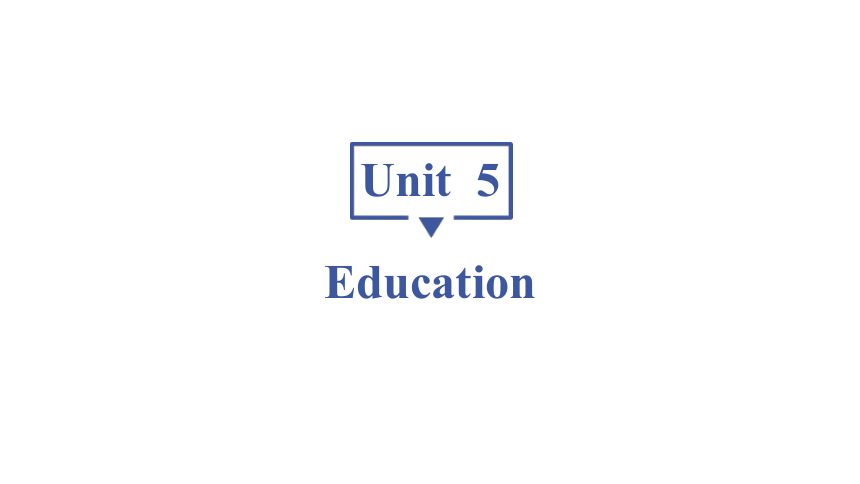
|
|
| 格式 | pptx | ||
| 文件大小 | 2.9MB | ||
| 资源类型 | 教案 | ||
| 版本资源 | 北师大版(2019) | ||
| 科目 | 英语 | ||
| 更新时间 | 2023-05-11 13:00:18 | ||
图片预览

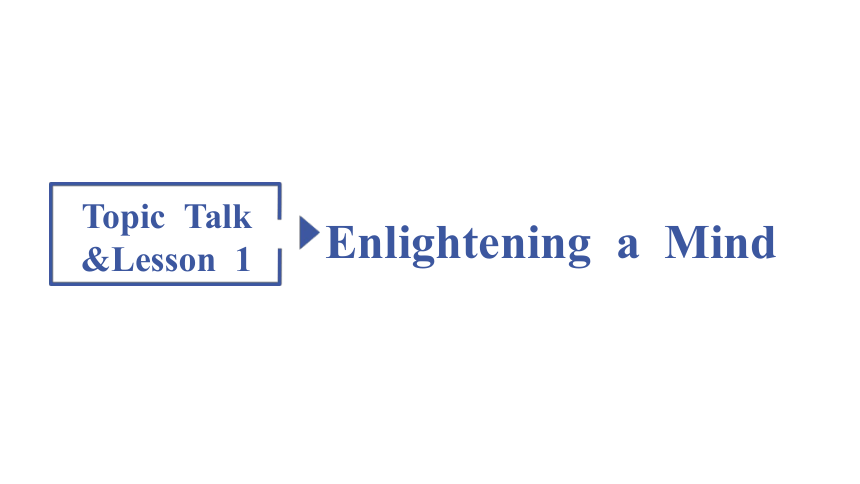
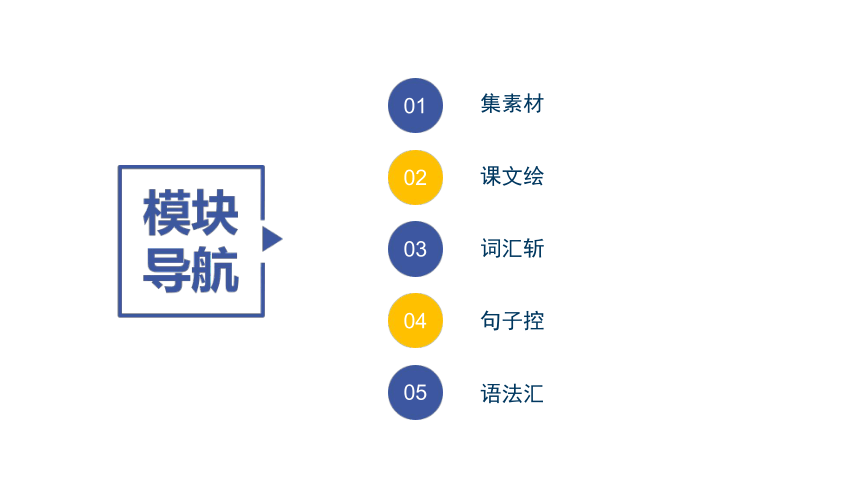
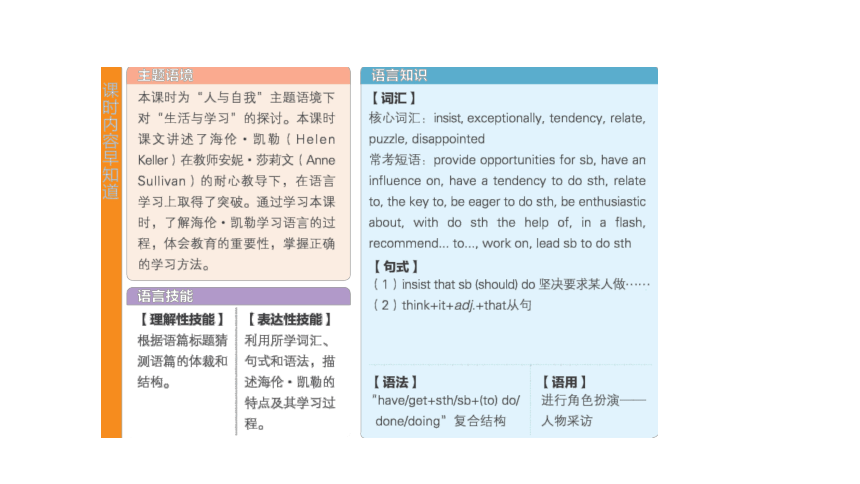
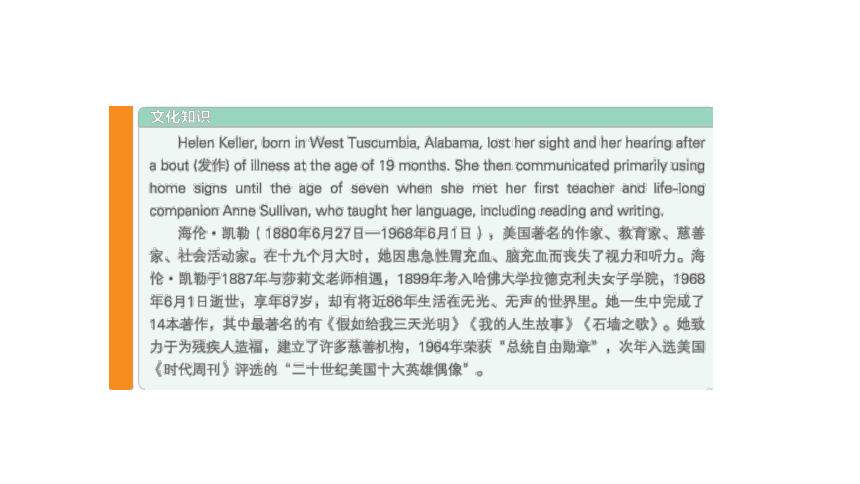
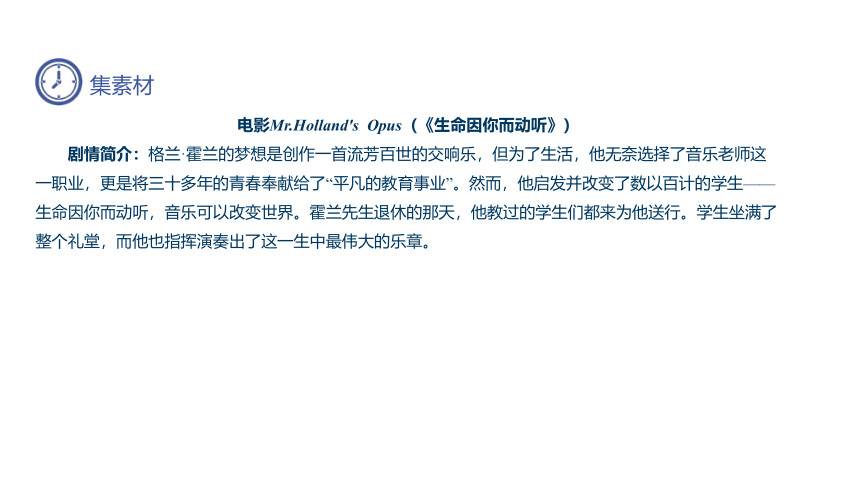
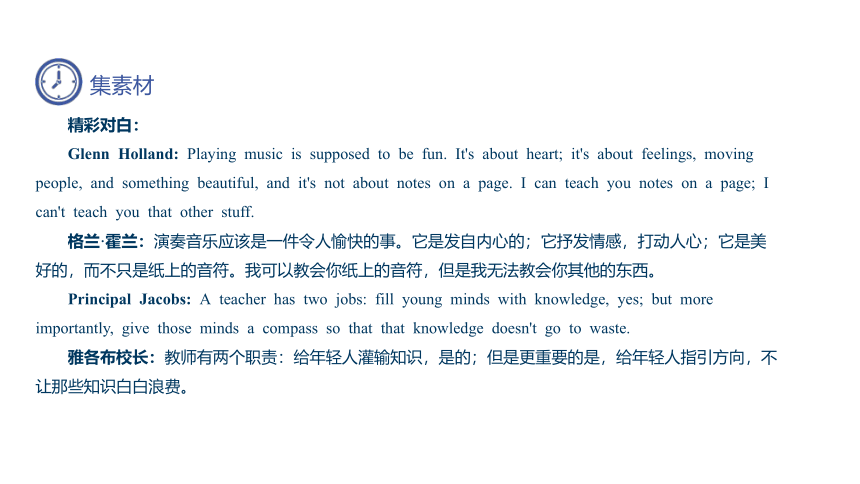
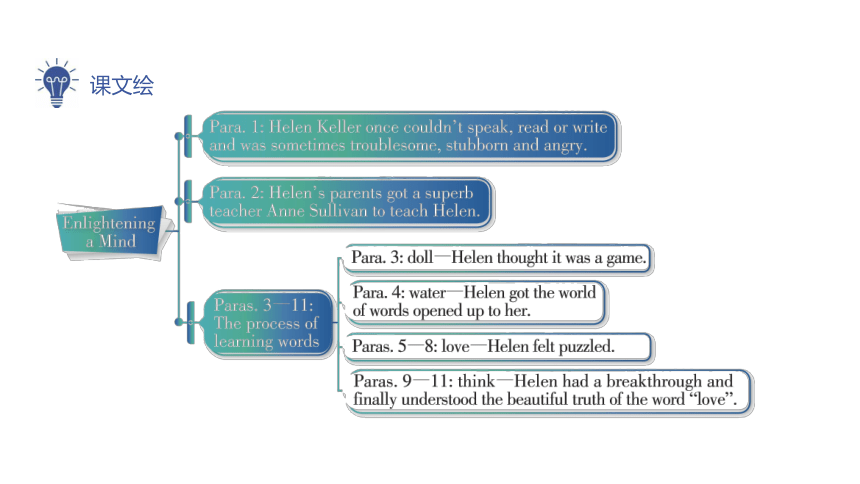
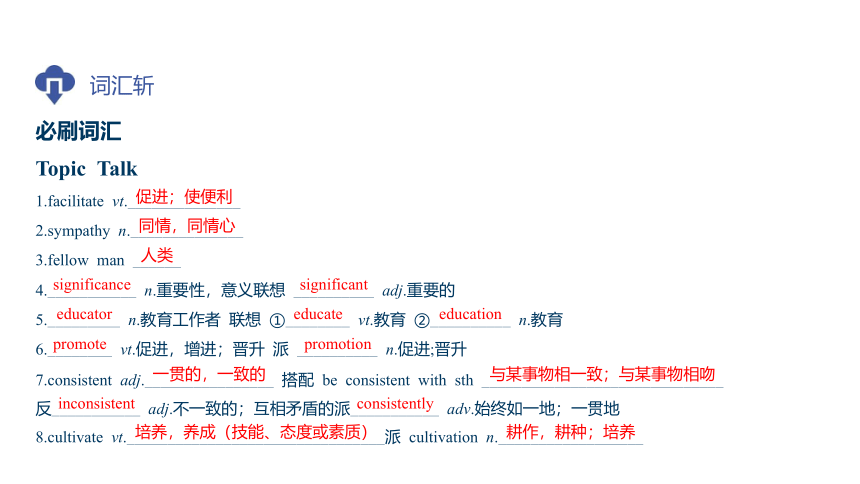
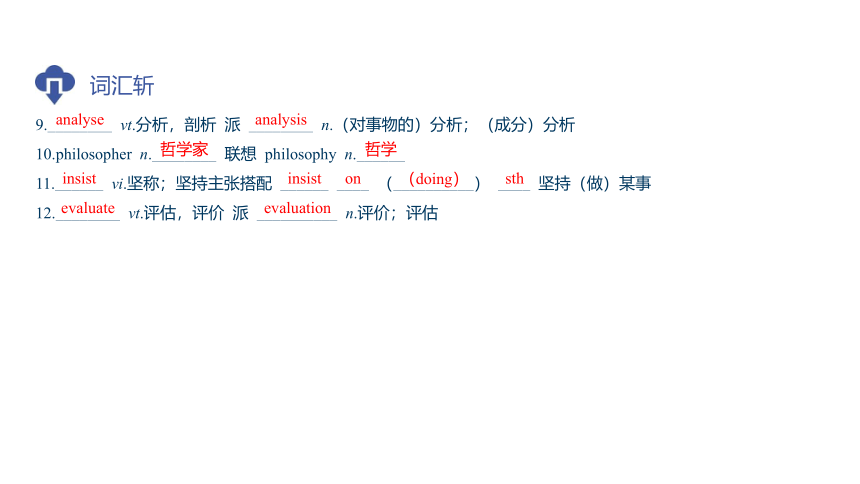
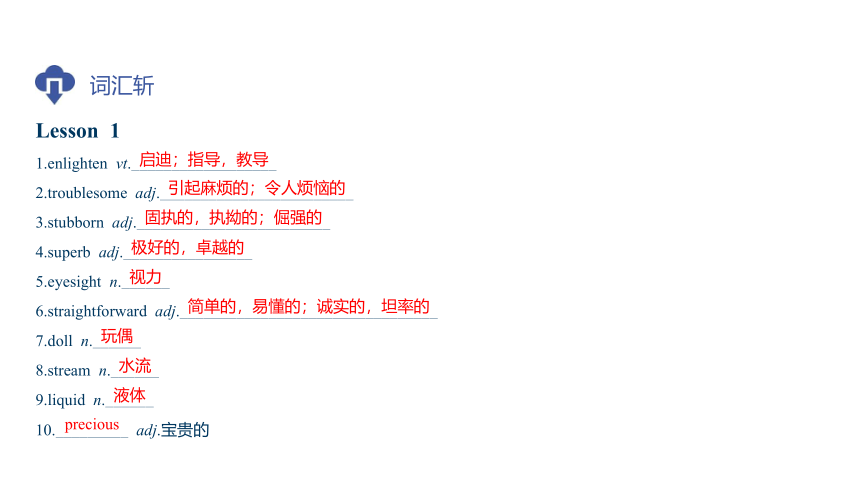
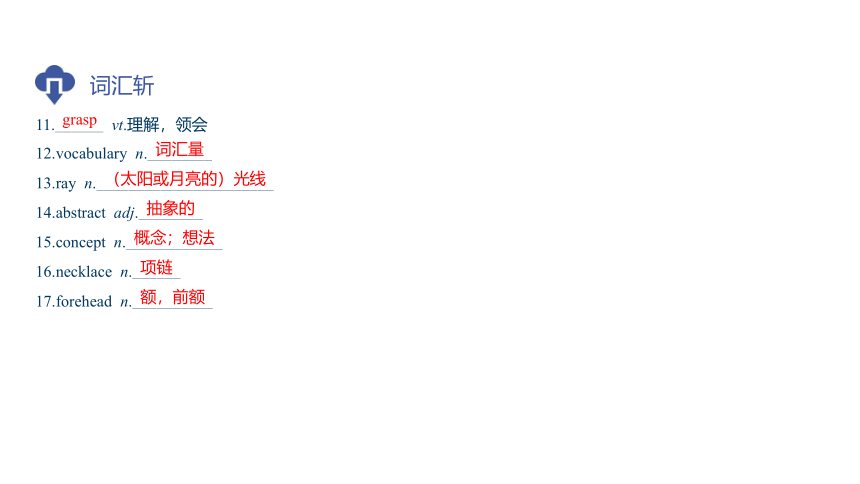
文档简介
(共76张PPT)
Unit 5
Education
Topic Talk &Lesson 1
Enlightening a Mind
电影Mr.Holland's Opus(《生命因你而动听》)
剧情简介:格兰·霍兰的梦想是创作一首流芳百世的交响乐,但为了生活,他无奈选择了音乐老师这一职业,更是将三十多年的青春奉献给了“平凡的教育事业”。然而,他启发并改变了数以百计的学生——生命因你而动听,音乐可以改变世界。霍兰先生退休的那天,他教过的学生们都来为他送行。学生坐满了整个礼堂,而他也指挥演奏出了这一生中最伟大的乐章。
精彩对白:
Glenn Holland: Playing music is supposed to be fun. It's about heart; it's about feelings, moving people, and something beautiful, and it's not about notes on a page. I can teach you notes on a page; I can't teach you that other stuff.
格兰·霍兰:演奏音乐应该是一件令人愉快的事。它是发自内心的;它抒发情感,打动人心;它是美好的,而不只是纸上的音符。我可以教会你纸上的音符,但是我无法教会你其他的东西。
Principal Jacobs: A teacher has two jobs: fill young minds with knowledge, yes; but more importantly, give those minds a compass so that that knowledge doesn't go to waste.
雅各布校长:教师有两个职责:给年轻人灌输知识,是的;但是更重要的是,给年轻人指引方向,不让那些知识白白浪费。
必刷词汇
Topic Talk
1.facilitate vt.______________
促进;使便利
2.sympathy n.______________
同情,同情心
3.fellow man ______
人类
4.___________ n.重要性,意义联想 __________ adj.重要的
significance
significant
5._________ n.教育工作者 联想 ①________ vt.教育 ②__________ n.教育
educator
educate
education
6.________ vt.促进,增进;晋升 派 __________ n.促进;晋升
promote
promotion
7.consistent adj.________________ 搭配 be consistent with sth ______________________________
反___________ adj.不一致的;互相矛盾的派___________ adv.始终如一地;一贯地
一贯的,一致的
与某事物相一致;与某事物相吻
inconsistent
consistently
8.cultivate vt.________________________________派 cultivation n.__________________
培养,养成(技能、态度或素质)
耕作,耕种;培养
9.________ vt.分析,剖析 派 ________ n.(对事物的)分析;(成分)分析
analyse
analysis
10.philosopher n.________ 联想 philosophy n.______
哲学家
哲学
11.______ vi.坚称;坚持主张搭配 ______ ____ (__________) ____ 坚持(做)某事
insist
insist
on
(doing)
sth
12.________ vt.评估,评价 派 __________ n.评价;评估
evaluate
evaluation
Lesson 1
1.enlighten vt.__________________
启迪;指导,教导
2.troublesome adj.________________________
引起麻烦的;令人烦恼的
3.stubborn adj.________________________
固执的,执拗的;倔强的
4.superb adj.________________
极好的,卓越的
5.eyesight n.______
视力
6.straightforward adj.________________________________
简单的,易懂的;诚实的,坦率的
7.doll n.______
玩偶
8.stream n.______
水流
9.liquid n.______
液体
10._________ adj.宝贵的
precious
11.______ vt.理解,领会
grasp
12.vocabulary n.________
词汇量
13.ray n.______________________
(太阳或月亮的)光线
14.abstract adj.________
抽象的
15.concept n.____________
概念;想法
16.necklace n.______
项链
17.forehead n.__________
额,前额
18.______ adj.生动的,逼真的
vivid
19.____________ n.突破;重大进展 搭配 ______/ ________ ___ _________________ 取得重大突破
breakthrough
make
achieve
a
great breakthrough
20.exceptionally adv.____________联想 exceptional adj.__________________
极其,非常
非常好的;罕见的
21._______ adj.很严重的 派 ________ adv.严重地
severe
severely
22.__________ n.限制,规定,约束 联想 ①_______ vt.限制;约束;限定 ②_________ adj.受限制的;
有限的;保密的
restriction
restrict
restricted
23.___________ adj.难以忍受的;承受不住的联想 ①_________ adj.可忍受的;可容忍的 ②_____ vt.忍
受;承受
unbearable
bearable
bear
24.tendency n.______联想 tend vi.______________ 搭配 tend to do sth ______________
倾向
往往会;趋向
往往会做某事
25.relate vi.______________ 派 ①related adj.__________②relation n.____________ ③relative n.______
adj.__________ 搭配 ①relate to… ______________________ ②be related to… ____________
理解;相联系
有关系的
关系;联系
亲戚
相关联的
与……相关;理解……
与……有关
26.technique n.____________联想 technical adj.________
技巧,手法
技术的
27.initially adv.______ 联想 initial adj.________
起初
最初的
28.___________ n.兴奋,激动 联想 ①________ adj.兴奋的;激动的 ②________ adj.令人兴奋的 ③
_______ vt.使兴奋;激起
excitement
excited
exciting
excite
29._________ n.模仿,仿效 联想 _______ vt.模仿;仿效
imitation
imitate
30.________ adj.逐渐的,逐步的 派 _________ adv.逐步地;逐渐地
gradual
gradually
31.painful adj.____________________________ 联想 ①pain n.____________②painless
adj.__________________
令人痛苦的;困难的;疼痛的
疼痛;痛苦
无痛的;不费力的
32.enthusiastic adj.________________ 联想 enthusiasm n.__________________ 搭配 be enthusiastic
about… ______________
热心的,热衷的
热心;热忱;热情
对……感兴趣
33.expand vi.& vt.__________________ 派 expansion n.____________
(使)扩大;增加
扩展;扩张
plex adj.____________________ 派 complexity n.__________________
复杂的;难以理解的
复杂之处;复杂性
35.gently adv.________________________ 联想 gentle adj.________________
轻柔地;温和地;平缓地
温和的;温柔的
36.puzzle vt.________________ 派 ①puzzled adj.____________________②puzzling adj.____________ ③
puzzlement n.____________
使困惑,使迷惑
困惑的;迷惑不解的
令人迷惑的
迷惑;困惑
37.apparent adj._____________________搭配 be apparent to sb ______________派 apparently adv.___________
显而易见的;明白的
某人明白……
38.____________ adj.失望的,沮丧的联想 ①__________ vt.& vi.(使)失望 ②_____________ adj.令人
失望的 ③______________ n.失望;沮丧
disappointed
disappoint
disappointing
disappointment
显然;似乎
核心词汇
… Comenius, insisted that when teaching, the subject matter should be adapted to learners' interests, and the method of instruction should be consistent with their mental development.……夸美纽斯坚持主张,在教学时,学科内容应适应学习者的兴趣,教学方法也应与他们的心理发展状况相一致。
教材P11
1 insistvi.坚持主张;坚称
&1& insist on (doing) sth坚称某事;坚持(做)某事
释义·理解
insist
①to say firmly that sth is true;
②to demand that sth should happen
insist on/upon doing sth坚决要求做某事
She kept insisting on her innocence.她再三坚称自己无罪。
I might fail, but anyhow I insist on doing. .it.I never lose heart.我可能会失败,但无论怎样,我会坚持做的。我永不灰心。
&2& ①insist意为“坚决要求/坚持主张(做某事)”时,其后的宾语从句用虚拟语气,即从句的谓语动词用should do的形式,should可以省略。
②insist意为“坚持说;坚决认为”时,后面的宾语从句不用虚拟语气。
Weinsisted that the girl was qualified for the job, but the manager insisted that she (should) not be offered the job because of her shyness as a receptionist.我们坚持说这个女孩能胜任这份工作,但经理坚决要求不给她这份工作,因为作为接待员来说,她太腼腆了。
定向练1
在空白处填入括号内单词的正确形式。
1.The manager insisted that the problem ____________ (discuss) that day, so we had a meeting into
late night.
be discussed
[解析] 句意为:经理坚持要当天讨论这个问题,所以我们一直开会到深夜。此句中insist意为“坚决要求(做某事)”,其后的宾语从句的谓语用should do的形式, should可以省略;根据语境可知,主语the problem与动词discuss之间为被动关系,应用被动语态。
2.His friends insisted he _____ (have) no connection with drugs.
had
[解析] 句意为:他的朋友们坚称他和毒品没有关系。此句中insist意为“坚持说”,其后的宾语从句不用虚拟语气。
3.He insisted that he _____ (be)not ill, but the doctor insisted that he _____ (take) some medicine.
was
take
[解析] 句意为:他坚持说他没有生病,但医生坚决要求他服药。第一空前的insist表示“坚持说”;第二空前的insist表示“坚决要求”。
4.The man insisted on ________ (find) a taxi for me even though I told him I lived nearly.
finding
[解析] 句意为:尽管我告诉他我住在附近,这位男士还是坚持为我打了个车。insist on doing sth为固定搭配,意为“坚持做某事”。
That is not love and you know it. Why do you. .insist on calling it love 那不是爱,你知道的。为什么你坚持称它为爱呢?
That is not love and you know it. Why do you. .insist on calling it love 那不是爱,你知道的。为什么你坚持称它为爱呢?
——《鸟人》
2 exceptionally adv.极其,非常
As a surgeon, he was exceptionally gifted.作为一名外科医生,他十分有天赋。
&3& ①exception n.例外
with the exception of… 除……之外;不包括……在内
without exception 一律;无一例外
With the exception of. .using a small microwave oven to heat food, students are not permitted to cook in their rooms.除了可用小型微波炉加热食物外,学生不被允许在房间里做饭。
②exceptional adj.非凡的;杰出的;不寻常的;罕见的
We will wander in traditional small towns and end our tour with an exceptional museum in Shanghai.我们将在传统的小城镇里漫步,最后以参观上海一座杰出的博物馆来结束我们的旅行。[2020课标全国Ⅲ]
定向练2
一、在空白处填入1个适当的单词或括号内单词的正确形式。
1.Usually the Player of the Year title is given to a big name from the best team.But this time there is
an __________ (except).
exception
[解析] 句意为:通常“年度最佳球员”的头衔会授予最佳球队中的著名球员。但这次是个例外。
2.I like all kinds of movies _____ the exception of horror movies.
with
[解析] 句意为:除了恐怖片,各种类型的电影我都喜欢。with the exception of… 为固定搭配,意为“除……之外”。
3.At the age of five he showed ___________ (exception) talent as a musician.
exceptional
[解析] 句意为:他五岁时就表现出非凡的音乐才能。此处修饰名词talent,应用形容词形式。
4.The weather, even for January, was _____________ (exceptional) cold.
exceptionally
[解析] 句意为:这种天气即使在一月份也算得上非常寒冷。
二、翻译句子。
1.All without exception were glad.
__________________
所有人无不称快。
2.除了最后一部小说,他的所有作品都以意大利为背景。
____________________________________________________________
All his works are set in Italy with the exception of his last novel.
3 tendency n.倾向;偏好;趋势
&4& have a tendency to do sth 倾向于做某事;有做某事的趋势
have a tendency to/towards… 倾向于/趋于……
Old peoplehave a tendency to live a simple life.老年人倾向于过简单的生活。
Little children have a tendency towards illness.小孩子容易生病。
She was sometimes troublesome, stubborn and angry, and had a tendency to break things when no one understood her.海伦有时很烦人、很固执,而且很易怒。没有人能理解她(的意思)时,她就会摔东西。
教材P30
&5& tend vi.往往会;易于;倾向;趋于 vt.& vi.照料;照管;护理
tend to do sth 易于做某事;往往会发生某事
tend to/towards… 倾向于/趋于……
tend (to) sb/sth 照料/照管某人/某物
Higher-income parents tended to have children play with puzzles more frequently.收入较高的父母让孩子玩拼图游戏的频率往往更高。
She tended to her husband carefully during his illness.丈夫生病期间,她对他悉心照顾。
定向练3
在空白处填入1个适当的单词或括号内单词的正确形式。
1.Grandparents who babysit their grandchildren tend _______ (live) longer than seniors who do not
care for other people.
to live
[解析] 此处考查短语tend to do sth,意为“往往会发生某事”。句意为:照顾孙子孙女的(外)祖父母往往比不照料他人的老人寿命更长。
2.He has a _________ (tend) to forget things.
tendency
[解析] 此处考查短语have a tendency to do sth,意为“倾向于做某事”。句意为:他总是忘事。
3.During the Second World War, he was a doctor and tended ___ the injured on the battlefield.
to
[解析] 此处考查短语tend to sb,意为“照料某人”。句意为:二战期间,他是一名医生,在战地照顾伤员。
4 relatevi.理解;相联系 vt.把……联系起来;叙述;讲述
I don't understand how the two ideas relate.我不明白这两个观点有什么联系。[《朗文当代》]
I found it difficult to relate the two ideas in my mind.我觉得很难把这两种想法联系在一起。
relate
①to understand sth;
②to connect;
③to tell a story
She'd had eyesight problems early in life as well so she could relate to Helen's difficulties.她小时候也有视力障碍,所以她能理解海伦(所面临)的困境。
教材P30
&6& relate… to… 把……和……联系起来;跟……讲述……
relate to 理解;认同
Trainees should be asked to relate new ideas to their past experience.应该要求实习生把新想法与他们以往的经验联系起来。
He later related the whole story to me.他后来给我讲了整件事的来龙去脉。[《朗文当代》]
Why doesn't she want to go on holiday I can't relate to that.她为什么不想去度假 我无法理解。
&7& ①related adj.相关的;有联系的;有亲属关系的
be related to… 与……有关
Income tax rates are related to one's annual income.所得税税率与个人年收入的数额相关。
②relation n.(事物之间的)关系,联系;亲属;(人、团体、国家等之间的)关系,交往(常用复数)
in relation to sth关于某事物;相对某事物而言(用于显示两者的联系或进行比较)
Its brain is small in relation to (=compared with) its body.和它的身体相比,它的大脑很小。[《牛津高阶》]
I have nothing to say in relation to the quality of these goods.关于这批货物的质量我没有什么要说的。
③relationship n.关系;关联
The relationship between the police and the local community has improved.警察和当地社区之间的关系已经得到改善。
④unrelated adj.不相关的
⑤relative n.亲戚 adj.相关联的;相对的
⑥relatively adv.相对地;比较而言
定向练4
用relate的正确形式填空。
1.This guy usually _______ happiness to money, which is quite wrong.
relates
[解析] 句意为:这个人通常把幸福与金钱联系在一起,这是非常不对的。
2.She _______to us some of her experiences in Nanjing this morning.
related
[解析] 句意为:今早她跟我们讲述了她在南京的一些经历。
3.I have some comments to make in ________ to this matter.
relation
[解析] 句意为:关于这件事我要作出一些评论。
4.The children, although not _______ to us by blood, had become as dear to us as our own.
related
[解析] 句意为:这些孩子虽然和我们没有血缘关系,但对我们来说已变得和亲生孩子一样亲。
5.Spanish is a language _________ easy to learn.
relatively
[解析] 句意为:西班牙语是一门相对容易学习的语言。此处修饰形容词短语easy to learn,应用副词形式。
How do we know this stranger is even related to you 我们怎么知道这个陌生人甚至和你有关系?
——《功夫熊猫3》
5 puzzle
① vt.使困惑,使迷惑
What puzzles me is why he was late again.令我不解的是他为什么又迟到了。
&8& puzzle over/about sth冥思苦想某事;仔细琢磨某事
I've been sitting here puzzling over what to do.我一直坐在这里苦思着要做什么。
② n.[常用单数]谜;难题[C]拼图游戏;智力游戏
Her words puzzled me very much because I did not then understand anything unless I touched it.她的话令我非常困惑,因为以往我只有触碰到某个物体,才能理解它代表的意思。
教材P31
The deeper meaning of the poem remains a puzzle to the people today.这首诗的深层含义对于今天的人们来说仍是个谜。
Some parents will buy any high-tech toy if they think it will help their child, but researchers said puzzles help children with math-related skills.一些家长如果认为某件高科技玩具对孩子有帮助,他们就会购买,但研究人员称,拼图游戏能帮助孩子提高与数学相关的技能。
&9& ①puzzlement n.[U]迷惑;困惑
in puzzlement困惑地
He stared at the strange words in puzzlement他困惑地盯着这些陌生的单词。
②puzzled adj.无法理解的;困惑的
be/feel puzzled about/at… 对……感到困惑不解
When we speak English today, we sometimes feel puzzled about which words or phrases to use.如今我们在说英语时,有时会对使用哪些单词或词组感到困惑。
③puzzling adj.令人迷惑的;令人费解的
He looked at me with a puzzled expression. Maybe what I said was quite puzzling.他面带困惑地看着我。也许我说的话相当令人费解。
定向练5
用puzzle的正确形式填空。
1.________ at what had happened, she decided to look into the matter on her own.
Puzzled
[解析] 句意为:由于对发生的事感到不解,她决定自己去调查这件事。be puzzled at… 表示“对……感到困惑不解”,此处省略be动词,为形容词短语作原因状语。故填Puzzled。
2.Whenever I don't get across to you, please show your ___________ or put your hand up.
puzzlement
[解析] 句意为:无论什么时候我没有给你讲清楚,请让我知道你的困惑或举手(示意)。设空处在句中作宾语且前有your修饰,应用名词,puzzlement为不可数名词。
3.Her ________ look showed that she was ________ about what he said. It was _________ that he would
rather throw away the food than give it to those in need.What he said as well as what he did ________
all the people present.
puzzled
puzzled
puzzling
puzzled
[解析] 段意为:她困惑的表情表明她对他说的话感到不解。他宁愿把食物扔掉也不愿意将其送给那些有需要的人,这真令人费解。他所说的和所做的都使在场的人感到困惑。第一空在句中作定语修饰名词look (表情),应用-ed形式的形容词,表示“困惑的”;第二空为固定搭配be puzzled about…,意为“对……感到困惑不解”;第三空表示“他的行为令人费解”,应用-ing形式的形容词;第四空在句中作谓语,结合语境可知,应用一般过去时。
6 disappointed adj.失望的,沮丧的
&10& be disappointed with/at/by/about sth对某事感到失望/沮丧
be disappointed in/with sb对某人很失望
be disappointed to see/hear… 看到/听到……很失望/沮丧
be disappointed that… 对……沮丧/失望
I was bitterly disappointed with/at/by/about the result.我对这结果感到极为失望。
He was disappointed to see she wasn't at the party.看到她没来参加聚会,他感到很失望。
I was disappointed that Tom was not there.汤姆不在那儿,我很失望。
When her teacher said that it wasn't, she was confused and disappointed.当她的老师说它不是(爱)时,海伦感到困惑且失望。
教材P31
&11& ①disappointing adj.令人失望的
②disappointment n.失望
to one's disappointment 让某人失望的是
③disappoint vt.& vi.(使)失望 vt.使破灭
disappoint sb's expectations让某人的期望破灭
定向练6
在空白处填入1个适当的单词或括号内单词的正确形式。
1.There is no reason to be ____________ (disappoint). As a matter of fact, this could be rather
amusing.
disappointed
[解析] 句意为:(我们)没有理由失望。事实上,这可能相当有趣。
2.Much to our surprise, Tom was not ____________ at the _____________ news that he failed his exam.
(disappoint)
disappointed
disappointing
[解析] 句意为:令我们非常惊讶的是,汤姆对他考试不及格这一令人失望的消息并没有感到沮丧。
3.I was disappointed _____ our team had lost the game.
that
[解析] 句意为:我们队输了比赛,我感到很沮丧。be disappointed that… 意为“对……沮丧/失望”。
4.When he heard the bad news, his ______________ (disappoint)was obvious.
disappointment
[解析] 句意为:当他听到这个坏消息时,他明显感到失望。
5.He was disappointed ________ (hear) the news.
to hear
[解析] be disappointed to hear… 意为“听到……很失望”。
6.Gordon was bitterly ____________ (disappoint) when he knew that he hadn't been admitted to the
club.
disappointed
[解析] 句意为: 当戈登得知他未被俱乐部接纳时,他感到非常沮丧。
1
【句意】……近代第一位伟大的教育哲学家夸美纽斯坚持主张,在教学时,学科内容应适应学习者的兴趣,教学方法也应与他们的心理发展状况相一致。
教材P111
&12& 宾语从句中虚拟语气的用法
insist意为“坚决要求;坚持主张”时,其后的宾语从句应使用虚拟语气,即从句谓语用“should+动词原形”,should可以省略。
常见的有类似用法的动词有表示建议、要求、命令、劝告的advise, suggest (建议), order, require, recommend (建议), command等。
记忆口诀:一坚持(insist),二命令(order, command),三建议(suggest, advise, recommend),四要求(ask, require, demand, request)。
特别注意 insist和suggest有双重意思和用法,使用时需注意判断。
①insist表示“坚决要求;坚持主张”时,其后的宾语从句需要使用虚拟语气;表示“坚称;坚持认为”时,不需要使用虚拟语气。
We insisted that what the boy did was wrong.我们坚持认为这个男孩做的事不对。(insist表示“坚持认为”,不使用虚拟语气)
②suggest表示“建议”时,其后的宾语从句需要使用虚拟语气;表示“暗示;表明”时,不需要使用虚拟语气。
Her smile suggested that she was in favour of the plan.她的笑容表明她支持这个计划。(suggest表示“表明;暗示”,不使用虚拟语气)
定向练1
翻译句子。
1.他坚持要到南方去工作。(从句)
___________________________________________________
He insisted that he (should) go to work in the south.
2.医生坚持说这位病人当时仍然处于危险中。
______________________________________________________
The doctor insisted that the patient was still in danger then.
3.老师要求我们听英语广播节目来提高听力水平。(demand)
____________________________________________________________________________________________
_____
The teacher demanded that we (should) listen to English radio programmes to improve our listening skills.
4.他的沉默说明了他同意我的决定。
_________________________________________________
His silence suggested that he agreed with my decision.
5.他建议我们不要改变主意。
_____________________________________________________________________
He suggested/advised/recommended that we (should) not change our mind.
2
【句意】她七岁时,仍不会说话,不能读书也不会写字,一切都需要别人照顾。
教材P30
&13& by the time 引导的时间状语从句
①by the time… 意为“到……的时候”, 通常引导时间状语从句。如果从句用一般过去时,主句通常用过去完成时。
By the time he was twenty, Jack had travelled around China all by himself.到二十岁时,杰克已经独自遍游了中国。
②如果从句用一般现在时或现在完成时表示将来,那么主句常用将来完成时,表示“截至将来某一时间,主句动作将已经完成”。
By the time I graduate next year, I will have lived here for 4 years.到明年毕业时,我将在这里住满4年了。
③如果主句不强调动作已经完成,只是说明某个时候的状况(主句的谓语是be动词等表示状态的动词或是know, find, believe等表示认知的延续性动词),主句往往根据实际需要选用适当的时态,不用完成时态。此时by the time相当于when。
By the time the plane landed, so many people were waiting excitedly.当飞机降落时,这么多人都在激动地等待着。
定向练2
一、在空白处填入括号内单词的正确形式。
1.By the time Jack returned home from England, his son ______________(graduate) from college.
had graduated
[解析] 句意为:杰克从英格兰回到家时,他的儿子已经大学毕业了。By the time 引导的从句使用了一般过去时,结合语境可知,主句应用过去完成时强调动作已完成。
2.By the time we ____ (get) home, the man had left with a note on the door, saying “I'll come
tomorrow”.
got
[解析] 句意为:我们到家时,那人已经走了,他在门上留了张纸条,写着“我明天过来”。主句中had left为过去完成时,故By the time引导的从句应用一般过去时,故填got。
3.By the time Jane gets home, her aunt _____________(leave)for London to attend a meeting.
will have left
[解析] 句意为:等到简回到家时,她的姑姑应该已经启程前往伦敦去参加会议了。By the time引导的从句用一般现在时表示将来,主句应用将来完成时。
4.He was out of breath by the time he ________ (reach) the top of the mountain.
reached
[解析] 此处主句谓语表示主语的状态,此时by the time相当于when,根据was可知,此处应用一般过去时。
二、翻译句子。
1.等你收到这封信的时候,我已经离开这个城市回我的家乡了。
_______________________________________________________________________
By the time you receive this letter, I will have left this city for my hometown.
2.他12岁的时候就已经创办了自己的实验室。
________________________________________________________________
He had opened up a lab of his own by the time he was 12 years old.
3
【句意】我跑下楼去见我母亲,举起手用字母拼出了“doll”这个单词。
教材P30
&14& 现在分词(短语)作时间状语
现在分词(短语)作时间状语时,相当于一个时间状语从句,其逻辑主语一般为句子的主语。当现在分(短语)所表示的动作与句子谓语所表示的动作同时发生时,可用when或while进行强调;当现在分词(短语)所表示的动作发生在句子谓语所表示的动作之前时,应使用现在分词的完成式。
Seeing those pictures (=When she saw those pictures), she remembered her childhood.看到这些照片时,她想起了她的童年。
Having finished their homework (=After they had finished their homework), they went home.完成作业后,他们回家了。
特别注意 当现在分词(短语)表示一个极短暂的动作,如hear, see, arrive, return, get to, look, leave等,且强调该动作一发生,谓语动词所表示的动作就紧跟着发生时,现在分词(短语)可替换为“on/upon+动名词(短语)”,常译为“一……就……”。
Hearing their teacher's voice (=On/Upon hearing their teacher's voice), the pupils stopped talking at once.一听到老师的声音,学生们立刻停止了说话。
定向练3
在空白处填入1个适当的单词或括号内单词的正确形式。
1.________ (hear) the news, he burst into tears.
Hearing
[解析] 句意为:听到这个消息,他大哭起来。
2._______________ (water) the flowers, he began to cut the grass.
Having watered
[解析] 句意为:浇完了花,他开始修剪草坪。
3.____________ (read) the letter, I decided to write back at once.
Having read
[解析] 句意为:读完信后,我决定立刻回信。
4._______________ (work) among the farmers for many years, he knew them very well.
Having worked
[解析] 句意为:与这些农民一起工作了数年,他非常了解他们。
5._________ seeing the house, he couldn't help crying.
On/Upon
[解析] 句意为:一看到这栋房子,他就忍不住哭了起来。
4
【句意】由于海伦理解了语言的关键,她非常渴望学习更多(语言的相关知识),并且尽可能多地运用它。
教材P31
&15& 原因状语从句
原因状语从句通常用来表示主句动作发生的原因,或用来说明主句内容的理由或根据。常见的引导原因状语从句的词或短语包括because (因为), as (因为;由于), since (因为;既然), now that (既然;由于), considering (that)(考虑到)等。
One day, Tom will achieve his ambition because he is a hard-working and intelligent man.终有一日汤姆会实现自己的抱负,因为他是一个勤奋且聪明的人。
As it is foggy outside, we may as well call off the trip.由于外面有雾,我们还是取消这次旅行吧。
You'd better tell us the truth since you know the details.既然你知道细节,你最好告诉我们真相。
Now that the book fair is cancelled, the tickets can be thrown away.既然书展取消了,这些门票就可以扔掉了。
Considering (that) he was too young, we agreed to give him more help.考虑到他太小了,我们同意给他更多的帮助。
特别注意 for意为“因为;由于”时可用作并列连词,连接并列句,表示推理、解释或附加说明,语气最弱,一般不放在句首。
We listened eagerly, for he brought news of our families.我们急不可待地听着,因为他带来了我们家人的消息。
定向练4
根据汉语意思完成句子。
1.今早,我表妹上班迟到了,因为她的车在路上抛锚了。
This morning, my cousin was late for work, __________________________________________.
because/as/for her car broke down on the way
2.既然外面在下雪,我们决定在旅馆多住一天。
__________________________________, we decide to stay in the hotel for another day.
Now that/Since it is snowing outside
3.考虑到她的孩子太小,她放弃了那份具有挑战性的工作。
__________________________________________, she gave up that challenging job.
Considering (that) her child was too young
4.由于在下雨,你最好带上伞。
____________________________________, you'd better take your umbrella.
As/Because/Since/Now that it is raining
5
【句意】我的老师不能给我展示什么是爱,我觉得这很奇怪。
教材P31
&16& it作形式宾语
it作形式宾语多用于以下结构:
①think/find/feel/consider/make/regard/… +it+形容词/名词词组+不定式(短语)/从句等
She felt it her duty to help those in need.她认为帮助那些有困难的人是她的责任。
We all think it necessary that the conference should be held on time.我们都认为按时举行会议很有必要。
②like/love/hate/appreciate/…+it+when/if从句
I like it when you speak French.我喜欢你讲法语。
I would appreciate it if you could take my suggestion into consideration.要是您能将我的建议考虑在内,我将感激不尽。
③take it for granted/keep it in mind/rely on it/depend on it/see to it/… +that从句
I shall see to it that he is taken good care of when you are absent.你不在的时候,我会保证他得到悉心照顾。
You can rely on it that they will finish their work ahead of time.你可以相信他们会提前完成工作的。
定向练5
一、在空白处填入1个适当的单词或括号内单词的正确形式。
1.I consider ___ my honour to be invited to speak here.
it
[解析] 句意为:受邀在这里讲话,我感到非常荣幸。
2.They felt it impossible _________ (finish) the work in such a short time.
to finish
[解析] 句意为:他们认为在这么短的时间内完成这项工作是不可能的。
3.He hates ___ when people get too excited while watching a game.
it
[解析] 句意为:他讨厌人们在看比赛时过于兴奋。
二、根据汉语意思完成句子。
我们认为理论与实践相结合很重要。
①We consider ___ __________ ___ _________ theory with practice.(不定式作真正宾语)
it
important
to
combine
②We consider ___ __________ _____ _______ must be combined with practice.(从句作真正宾语)
it
important
that
theory
6
【句意】没有爱,你就不会快乐,也不想玩耍。
教材P31
&17& 含蓄虚拟语气
without一词表示“没有”,without短语可以含蓄地表达某一假设条件,这时句子应使用虚拟语气。本句中介词短语Without love可以替换成条件句“If it were not for love”,条件句中表示对现在事实的虚拟要使用一般过去时,be动词一般用were。其他类似用法的词或短语有with, but, but for, or else, otherwise等。例如:
Without your help (=If it were not for your help), we couldn't have succeed.没有你的帮助,我们就不会成功。
But for these interruptions, the meeting would have finished earlier.要不是几次被打断,会议早就开完了。
另外,当含蓄虚拟语气表示对过去事实的虚拟时,句子谓语动词应用would/could/… have done形式,without短语也可以替换为“if it had not…”,例如:
Without being cared for (=If it had not been cared for), the sick baby would not have survived for a week.如果之前没有得到照顾的话,这个生病的婴儿是活不过一周的。
With better equipment (=If there had been better equipment), we could have done it faster.如果有更好的设备,我们会做得更快。
定向练6
根据汉语意思完成句子。
1.没有树木,沙尘暴就得不到阻挡。
Without trees,the sandstorm ____________ ____ ____ __________.
would/could
not
be
prevented
2.如果没有得到治疗,这个病人就不会康复得这么快了。
①________ ______ _______, the patient would not have recovered so quickly.
Without
being
treated
②If he _____ ____ ______ _______, the patient would not have recovered so quickly.
had
not
been
treated
“have/get+sth/sb+(to)do/done/doing”复合结构
have/get可以用作使役动词,表示“使;让;叫”,可直接跟宾语,再接宾补,构成复合结构,宾补可由不定式(短语)、过去分词(短语)、现在分词(短语)充当,用法如下:
1. have sb do sth/get sb to do sth “使/让某人做某事”
I had Mary clean my bedroom yesterday.昨天我让玛丽清理了我的卧室。
Ted's mother had to stand over him to get him to do his homework.特德的妈妈不得不站在一旁盯着他做作业。
2. have/get sth/sb done常见的含义
(1)表示“(主语)请/派别人为自己完成某事”。
You'd better have that bad tooth pulled out.你最好把那颗坏牙拔了。
We ought to get her examined by the doctor.我们应该让医生给她检查一下。
(2)表示“(主语)完成某事(主语可能参与)”。
They are going to have/get some trees planted.他们打算种些树。
(3)表示“使某事/某物完成”。
Houses near airports sometimes have their windows broken by the noise of planes passing overhead.机场附近房屋的窗户有时会被上空飞过的飞机的噪声震碎。
He had his pocket picked yesterday morning.他昨天上午被扒窃了。(此处表示“遭受某种不幸”)
3. have/get sb/sth doing sth “让某人一直做某事/让某事一直进行”
They had the fire burning all night.他们任由火整夜燃烧着。
He had us laughing during lunchtime.他让我们在午饭期间一直笑个不停。
特别注意 ①若have sb doing用于否定句中,have还有“容忍”之意,常与won't连用,表示“不能让”或“不允许”。
I won't have you speaking to your parents like that.我不会容忍你跟你的父母那样说话。
②have作使役动词,后跟不定式(短语)作宾补时,to应省略。当have后面的不定式带有不定式符号to时,不定式(短语)多是作定语,修饰宾语;此外注意,have后的宾语还可跟过去分词(短语)作定语,修饰宾语。这两种情况中,have为实义动词,意为“有”。
I have a lot of work to do.我有很多工作要做。
I have no money left.我没有余钱了。
定向练
在空白处填入括号内单词的正确形式。
1.You can't have the horse ________ (run) all the way.
running
[解析] 句意为:你不能让马儿一直跑。have sb/sth doing sth意为“让某人/某物一直做某事”。
2.Please get someone_________ the machine; I want to get it ________ as soon as possible.(repair)
to repair
repaired
[解析] 句意为:请找人修一下机器,我想尽快把它修好。第一空表示“使/让某人做某事”,用get sb to do sth;第二空表示“使某事完成”,用get sth done结构。
3.I will stay up tonight because I have to have a letter______ (type).
typed
[解析] 句意为:我今天晚上要熬夜,因为有一封信需要打出来。have sth done在这里表示“使某事完成”。
4.Do you want to get this book _________ (deliver) to your house or to the shop
delivered
[解析] 句意为:你是想让这本书送到家里,还是送到店里 此处指“把书送到家里”,应用get sth done,故填过去分词delivered。
5.Claire had her luggage ________ (check) an hour before her plane left.
checked
[解析] 句意为:克莱尔在飞机起飞前一小时托运了她的行李。have sth done意为“使/让某事完成”。
6.The teacher had the pupils ______ (clean) the hall.
clean
[解析] 句意为:老师让学生们打扫礼堂。have sb do sth意为“使/让/叫某人做某事”。
7.My funny stories had them all _________(laugh) throughout the meal.
laughing
[解析] 句意为:我有趣的故事让他们在吃饭期间一直笑个不停。have sb doing sth意为“让某人一直做某事”。
8.Mother had me ____ (go) to the shop and_____ (buy) some salt.
go
buy
[解析] 句意为:妈妈让我去商店买些盐。have sb do sth意为“使/让某人去做某事”。
9.I won't have you _________ (speak) so rudely to me.
speaking
[解析] 句意为:我不允许你如此粗鲁地和我讲话。have sb doing用于否定句中时,have有“容忍”之意。
10.Every day students have a lot of homework_________ (finish).
to finish
[解析] 句意为:学生每天都有很多作业要完成。此处to finish作后置定语,修饰前面的名词词组a lot of homework;have在该句中为实义动词,意为“有”。
Unit 5
Education
Topic Talk &Lesson 1
Enlightening a Mind
电影Mr.Holland's Opus(《生命因你而动听》)
剧情简介:格兰·霍兰的梦想是创作一首流芳百世的交响乐,但为了生活,他无奈选择了音乐老师这一职业,更是将三十多年的青春奉献给了“平凡的教育事业”。然而,他启发并改变了数以百计的学生——生命因你而动听,音乐可以改变世界。霍兰先生退休的那天,他教过的学生们都来为他送行。学生坐满了整个礼堂,而他也指挥演奏出了这一生中最伟大的乐章。
精彩对白:
Glenn Holland: Playing music is supposed to be fun. It's about heart; it's about feelings, moving people, and something beautiful, and it's not about notes on a page. I can teach you notes on a page; I can't teach you that other stuff.
格兰·霍兰:演奏音乐应该是一件令人愉快的事。它是发自内心的;它抒发情感,打动人心;它是美好的,而不只是纸上的音符。我可以教会你纸上的音符,但是我无法教会你其他的东西。
Principal Jacobs: A teacher has two jobs: fill young minds with knowledge, yes; but more importantly, give those minds a compass so that that knowledge doesn't go to waste.
雅各布校长:教师有两个职责:给年轻人灌输知识,是的;但是更重要的是,给年轻人指引方向,不让那些知识白白浪费。
必刷词汇
Topic Talk
1.facilitate vt.______________
促进;使便利
2.sympathy n.______________
同情,同情心
3.fellow man ______
人类
4.___________ n.重要性,意义联想 __________ adj.重要的
significance
significant
5._________ n.教育工作者 联想 ①________ vt.教育 ②__________ n.教育
educator
educate
education
6.________ vt.促进,增进;晋升 派 __________ n.促进;晋升
promote
promotion
7.consistent adj.________________ 搭配 be consistent with sth ______________________________
反___________ adj.不一致的;互相矛盾的派___________ adv.始终如一地;一贯地
一贯的,一致的
与某事物相一致;与某事物相吻
inconsistent
consistently
8.cultivate vt.________________________________派 cultivation n.__________________
培养,养成(技能、态度或素质)
耕作,耕种;培养
9.________ vt.分析,剖析 派 ________ n.(对事物的)分析;(成分)分析
analyse
analysis
10.philosopher n.________ 联想 philosophy n.______
哲学家
哲学
11.______ vi.坚称;坚持主张搭配 ______ ____ (__________) ____ 坚持(做)某事
insist
insist
on
(doing)
sth
12.________ vt.评估,评价 派 __________ n.评价;评估
evaluate
evaluation
Lesson 1
1.enlighten vt.__________________
启迪;指导,教导
2.troublesome adj.________________________
引起麻烦的;令人烦恼的
3.stubborn adj.________________________
固执的,执拗的;倔强的
4.superb adj.________________
极好的,卓越的
5.eyesight n.______
视力
6.straightforward adj.________________________________
简单的,易懂的;诚实的,坦率的
7.doll n.______
玩偶
8.stream n.______
水流
9.liquid n.______
液体
10._________ adj.宝贵的
precious
11.______ vt.理解,领会
grasp
12.vocabulary n.________
词汇量
13.ray n.______________________
(太阳或月亮的)光线
14.abstract adj.________
抽象的
15.concept n.____________
概念;想法
16.necklace n.______
项链
17.forehead n.__________
额,前额
18.______ adj.生动的,逼真的
vivid
19.____________ n.突破;重大进展 搭配 ______/ ________ ___ _________________ 取得重大突破
breakthrough
make
achieve
a
great breakthrough
20.exceptionally adv.____________联想 exceptional adj.__________________
极其,非常
非常好的;罕见的
21._______ adj.很严重的 派 ________ adv.严重地
severe
severely
22.__________ n.限制,规定,约束 联想 ①_______ vt.限制;约束;限定 ②_________ adj.受限制的;
有限的;保密的
restriction
restrict
restricted
23.___________ adj.难以忍受的;承受不住的联想 ①_________ adj.可忍受的;可容忍的 ②_____ vt.忍
受;承受
unbearable
bearable
bear
24.tendency n.______联想 tend vi.______________ 搭配 tend to do sth ______________
倾向
往往会;趋向
往往会做某事
25.relate vi.______________ 派 ①related adj.__________②relation n.____________ ③relative n.______
adj.__________ 搭配 ①relate to… ______________________ ②be related to… ____________
理解;相联系
有关系的
关系;联系
亲戚
相关联的
与……相关;理解……
与……有关
26.technique n.____________联想 technical adj.________
技巧,手法
技术的
27.initially adv.______ 联想 initial adj.________
起初
最初的
28.___________ n.兴奋,激动 联想 ①________ adj.兴奋的;激动的 ②________ adj.令人兴奋的 ③
_______ vt.使兴奋;激起
excitement
excited
exciting
excite
29._________ n.模仿,仿效 联想 _______ vt.模仿;仿效
imitation
imitate
30.________ adj.逐渐的,逐步的 派 _________ adv.逐步地;逐渐地
gradual
gradually
31.painful adj.____________________________ 联想 ①pain n.____________②painless
adj.__________________
令人痛苦的;困难的;疼痛的
疼痛;痛苦
无痛的;不费力的
32.enthusiastic adj.________________ 联想 enthusiasm n.__________________ 搭配 be enthusiastic
about… ______________
热心的,热衷的
热心;热忱;热情
对……感兴趣
33.expand vi.& vt.__________________ 派 expansion n.____________
(使)扩大;增加
扩展;扩张
plex adj.____________________ 派 complexity n.__________________
复杂的;难以理解的
复杂之处;复杂性
35.gently adv.________________________ 联想 gentle adj.________________
轻柔地;温和地;平缓地
温和的;温柔的
36.puzzle vt.________________ 派 ①puzzled adj.____________________②puzzling adj.____________ ③
puzzlement n.____________
使困惑,使迷惑
困惑的;迷惑不解的
令人迷惑的
迷惑;困惑
37.apparent adj._____________________搭配 be apparent to sb ______________派 apparently adv.___________
显而易见的;明白的
某人明白……
38.____________ adj.失望的,沮丧的联想 ①__________ vt.& vi.(使)失望 ②_____________ adj.令人
失望的 ③______________ n.失望;沮丧
disappointed
disappoint
disappointing
disappointment
显然;似乎
核心词汇
… Comenius, insisted that when teaching, the subject matter should be adapted to learners' interests, and the method of instruction should be consistent with their mental development.……夸美纽斯坚持主张,在教学时,学科内容应适应学习者的兴趣,教学方法也应与他们的心理发展状况相一致。
教材P11
1 insistvi.坚持主张;坚称
&1& insist on (doing) sth坚称某事;坚持(做)某事
释义·理解
insist
①to say firmly that sth is true;
②to demand that sth should happen
insist on/upon doing sth坚决要求做某事
She kept insisting on her innocence.她再三坚称自己无罪。
I might fail, but anyhow I insist on doing. .it.I never lose heart.我可能会失败,但无论怎样,我会坚持做的。我永不灰心。
&2& ①insist意为“坚决要求/坚持主张(做某事)”时,其后的宾语从句用虚拟语气,即从句的谓语动词用should do的形式,should可以省略。
②insist意为“坚持说;坚决认为”时,后面的宾语从句不用虚拟语气。
Weinsisted that the girl was qualified for the job, but the manager insisted that she (should) not be offered the job because of her shyness as a receptionist.我们坚持说这个女孩能胜任这份工作,但经理坚决要求不给她这份工作,因为作为接待员来说,她太腼腆了。
定向练1
在空白处填入括号内单词的正确形式。
1.The manager insisted that the problem ____________ (discuss) that day, so we had a meeting into
late night.
be discussed
[解析] 句意为:经理坚持要当天讨论这个问题,所以我们一直开会到深夜。此句中insist意为“坚决要求(做某事)”,其后的宾语从句的谓语用should do的形式, should可以省略;根据语境可知,主语the problem与动词discuss之间为被动关系,应用被动语态。
2.His friends insisted he _____ (have) no connection with drugs.
had
[解析] 句意为:他的朋友们坚称他和毒品没有关系。此句中insist意为“坚持说”,其后的宾语从句不用虚拟语气。
3.He insisted that he _____ (be)not ill, but the doctor insisted that he _____ (take) some medicine.
was
take
[解析] 句意为:他坚持说他没有生病,但医生坚决要求他服药。第一空前的insist表示“坚持说”;第二空前的insist表示“坚决要求”。
4.The man insisted on ________ (find) a taxi for me even though I told him I lived nearly.
finding
[解析] 句意为:尽管我告诉他我住在附近,这位男士还是坚持为我打了个车。insist on doing sth为固定搭配,意为“坚持做某事”。
That is not love and you know it. Why do you. .insist on calling it love 那不是爱,你知道的。为什么你坚持称它为爱呢?
That is not love and you know it. Why do you. .insist on calling it love 那不是爱,你知道的。为什么你坚持称它为爱呢?
——《鸟人》
2 exceptionally adv.极其,非常
As a surgeon, he was exceptionally gifted.作为一名外科医生,他十分有天赋。
&3& ①exception n.例外
with the exception of… 除……之外;不包括……在内
without exception 一律;无一例外
With the exception of. .using a small microwave oven to heat food, students are not permitted to cook in their rooms.除了可用小型微波炉加热食物外,学生不被允许在房间里做饭。
②exceptional adj.非凡的;杰出的;不寻常的;罕见的
We will wander in traditional small towns and end our tour with an exceptional museum in Shanghai.我们将在传统的小城镇里漫步,最后以参观上海一座杰出的博物馆来结束我们的旅行。[2020课标全国Ⅲ]
定向练2
一、在空白处填入1个适当的单词或括号内单词的正确形式。
1.Usually the Player of the Year title is given to a big name from the best team.But this time there is
an __________ (except).
exception
[解析] 句意为:通常“年度最佳球员”的头衔会授予最佳球队中的著名球员。但这次是个例外。
2.I like all kinds of movies _____ the exception of horror movies.
with
[解析] 句意为:除了恐怖片,各种类型的电影我都喜欢。with the exception of… 为固定搭配,意为“除……之外”。
3.At the age of five he showed ___________ (exception) talent as a musician.
exceptional
[解析] 句意为:他五岁时就表现出非凡的音乐才能。此处修饰名词talent,应用形容词形式。
4.The weather, even for January, was _____________ (exceptional) cold.
exceptionally
[解析] 句意为:这种天气即使在一月份也算得上非常寒冷。
二、翻译句子。
1.All without exception were glad.
__________________
所有人无不称快。
2.除了最后一部小说,他的所有作品都以意大利为背景。
____________________________________________________________
All his works are set in Italy with the exception of his last novel.
3 tendency n.倾向;偏好;趋势
&4& have a tendency to do sth 倾向于做某事;有做某事的趋势
have a tendency to/towards… 倾向于/趋于……
Old peoplehave a tendency to live a simple life.老年人倾向于过简单的生活。
Little children have a tendency towards illness.小孩子容易生病。
She was sometimes troublesome, stubborn and angry, and had a tendency to break things when no one understood her.海伦有时很烦人、很固执,而且很易怒。没有人能理解她(的意思)时,她就会摔东西。
教材P30
&5& tend vi.往往会;易于;倾向;趋于 vt.& vi.照料;照管;护理
tend to do sth 易于做某事;往往会发生某事
tend to/towards… 倾向于/趋于……
tend (to) sb/sth 照料/照管某人/某物
Higher-income parents tended to have children play with puzzles more frequently.收入较高的父母让孩子玩拼图游戏的频率往往更高。
She tended to her husband carefully during his illness.丈夫生病期间,她对他悉心照顾。
定向练3
在空白处填入1个适当的单词或括号内单词的正确形式。
1.Grandparents who babysit their grandchildren tend _______ (live) longer than seniors who do not
care for other people.
to live
[解析] 此处考查短语tend to do sth,意为“往往会发生某事”。句意为:照顾孙子孙女的(外)祖父母往往比不照料他人的老人寿命更长。
2.He has a _________ (tend) to forget things.
tendency
[解析] 此处考查短语have a tendency to do sth,意为“倾向于做某事”。句意为:他总是忘事。
3.During the Second World War, he was a doctor and tended ___ the injured on the battlefield.
to
[解析] 此处考查短语tend to sb,意为“照料某人”。句意为:二战期间,他是一名医生,在战地照顾伤员。
4 relatevi.理解;相联系 vt.把……联系起来;叙述;讲述
I don't understand how the two ideas relate.我不明白这两个观点有什么联系。[《朗文当代》]
I found it difficult to relate the two ideas in my mind.我觉得很难把这两种想法联系在一起。
relate
①to understand sth;
②to connect;
③to tell a story
She'd had eyesight problems early in life as well so she could relate to Helen's difficulties.她小时候也有视力障碍,所以她能理解海伦(所面临)的困境。
教材P30
&6& relate… to… 把……和……联系起来;跟……讲述……
relate to 理解;认同
Trainees should be asked to relate new ideas to their past experience.应该要求实习生把新想法与他们以往的经验联系起来。
He later related the whole story to me.他后来给我讲了整件事的来龙去脉。[《朗文当代》]
Why doesn't she want to go on holiday I can't relate to that.她为什么不想去度假 我无法理解。
&7& ①related adj.相关的;有联系的;有亲属关系的
be related to… 与……有关
Income tax rates are related to one's annual income.所得税税率与个人年收入的数额相关。
②relation n.(事物之间的)关系,联系;亲属;(人、团体、国家等之间的)关系,交往(常用复数)
in relation to sth关于某事物;相对某事物而言(用于显示两者的联系或进行比较)
Its brain is small in relation to (=compared with) its body.和它的身体相比,它的大脑很小。[《牛津高阶》]
I have nothing to say in relation to the quality of these goods.关于这批货物的质量我没有什么要说的。
③relationship n.关系;关联
The relationship between the police and the local community has improved.警察和当地社区之间的关系已经得到改善。
④unrelated adj.不相关的
⑤relative n.亲戚 adj.相关联的;相对的
⑥relatively adv.相对地;比较而言
定向练4
用relate的正确形式填空。
1.This guy usually _______ happiness to money, which is quite wrong.
relates
[解析] 句意为:这个人通常把幸福与金钱联系在一起,这是非常不对的。
2.She _______to us some of her experiences in Nanjing this morning.
related
[解析] 句意为:今早她跟我们讲述了她在南京的一些经历。
3.I have some comments to make in ________ to this matter.
relation
[解析] 句意为:关于这件事我要作出一些评论。
4.The children, although not _______ to us by blood, had become as dear to us as our own.
related
[解析] 句意为:这些孩子虽然和我们没有血缘关系,但对我们来说已变得和亲生孩子一样亲。
5.Spanish is a language _________ easy to learn.
relatively
[解析] 句意为:西班牙语是一门相对容易学习的语言。此处修饰形容词短语easy to learn,应用副词形式。
How do we know this stranger is even related to you 我们怎么知道这个陌生人甚至和你有关系?
——《功夫熊猫3》
5 puzzle
① vt.使困惑,使迷惑
What puzzles me is why he was late again.令我不解的是他为什么又迟到了。
&8& puzzle over/about sth冥思苦想某事;仔细琢磨某事
I've been sitting here puzzling over what to do.我一直坐在这里苦思着要做什么。
② n.[常用单数]谜;难题[C]拼图游戏;智力游戏
Her words puzzled me very much because I did not then understand anything unless I touched it.她的话令我非常困惑,因为以往我只有触碰到某个物体,才能理解它代表的意思。
教材P31
The deeper meaning of the poem remains a puzzle to the people today.这首诗的深层含义对于今天的人们来说仍是个谜。
Some parents will buy any high-tech toy if they think it will help their child, but researchers said puzzles help children with math-related skills.一些家长如果认为某件高科技玩具对孩子有帮助,他们就会购买,但研究人员称,拼图游戏能帮助孩子提高与数学相关的技能。
&9& ①puzzlement n.[U]迷惑;困惑
in puzzlement困惑地
He stared at the strange words in puzzlement他困惑地盯着这些陌生的单词。
②puzzled adj.无法理解的;困惑的
be/feel puzzled about/at… 对……感到困惑不解
When we speak English today, we sometimes feel puzzled about which words or phrases to use.如今我们在说英语时,有时会对使用哪些单词或词组感到困惑。
③puzzling adj.令人迷惑的;令人费解的
He looked at me with a puzzled expression. Maybe what I said was quite puzzling.他面带困惑地看着我。也许我说的话相当令人费解。
定向练5
用puzzle的正确形式填空。
1.________ at what had happened, she decided to look into the matter on her own.
Puzzled
[解析] 句意为:由于对发生的事感到不解,她决定自己去调查这件事。be puzzled at… 表示“对……感到困惑不解”,此处省略be动词,为形容词短语作原因状语。故填Puzzled。
2.Whenever I don't get across to you, please show your ___________ or put your hand up.
puzzlement
[解析] 句意为:无论什么时候我没有给你讲清楚,请让我知道你的困惑或举手(示意)。设空处在句中作宾语且前有your修饰,应用名词,puzzlement为不可数名词。
3.Her ________ look showed that she was ________ about what he said. It was _________ that he would
rather throw away the food than give it to those in need.What he said as well as what he did ________
all the people present.
puzzled
puzzled
puzzling
puzzled
[解析] 段意为:她困惑的表情表明她对他说的话感到不解。他宁愿把食物扔掉也不愿意将其送给那些有需要的人,这真令人费解。他所说的和所做的都使在场的人感到困惑。第一空在句中作定语修饰名词look (表情),应用-ed形式的形容词,表示“困惑的”;第二空为固定搭配be puzzled about…,意为“对……感到困惑不解”;第三空表示“他的行为令人费解”,应用-ing形式的形容词;第四空在句中作谓语,结合语境可知,应用一般过去时。
6 disappointed adj.失望的,沮丧的
&10& be disappointed with/at/by/about sth对某事感到失望/沮丧
be disappointed in/with sb对某人很失望
be disappointed to see/hear… 看到/听到……很失望/沮丧
be disappointed that… 对……沮丧/失望
I was bitterly disappointed with/at/by/about the result.我对这结果感到极为失望。
He was disappointed to see she wasn't at the party.看到她没来参加聚会,他感到很失望。
I was disappointed that Tom was not there.汤姆不在那儿,我很失望。
When her teacher said that it wasn't, she was confused and disappointed.当她的老师说它不是(爱)时,海伦感到困惑且失望。
教材P31
&11& ①disappointing adj.令人失望的
②disappointment n.失望
to one's disappointment 让某人失望的是
③disappoint vt.& vi.(使)失望 vt.使破灭
disappoint sb's expectations让某人的期望破灭
定向练6
在空白处填入1个适当的单词或括号内单词的正确形式。
1.There is no reason to be ____________ (disappoint). As a matter of fact, this could be rather
amusing.
disappointed
[解析] 句意为:(我们)没有理由失望。事实上,这可能相当有趣。
2.Much to our surprise, Tom was not ____________ at the _____________ news that he failed his exam.
(disappoint)
disappointed
disappointing
[解析] 句意为:令我们非常惊讶的是,汤姆对他考试不及格这一令人失望的消息并没有感到沮丧。
3.I was disappointed _____ our team had lost the game.
that
[解析] 句意为:我们队输了比赛,我感到很沮丧。be disappointed that… 意为“对……沮丧/失望”。
4.When he heard the bad news, his ______________ (disappoint)was obvious.
disappointment
[解析] 句意为:当他听到这个坏消息时,他明显感到失望。
5.He was disappointed ________ (hear) the news.
to hear
[解析] be disappointed to hear… 意为“听到……很失望”。
6.Gordon was bitterly ____________ (disappoint) when he knew that he hadn't been admitted to the
club.
disappointed
[解析] 句意为: 当戈登得知他未被俱乐部接纳时,他感到非常沮丧。
1
【句意】……近代第一位伟大的教育哲学家夸美纽斯坚持主张,在教学时,学科内容应适应学习者的兴趣,教学方法也应与他们的心理发展状况相一致。
教材P111
&12& 宾语从句中虚拟语气的用法
insist意为“坚决要求;坚持主张”时,其后的宾语从句应使用虚拟语气,即从句谓语用“should+动词原形”,should可以省略。
常见的有类似用法的动词有表示建议、要求、命令、劝告的advise, suggest (建议), order, require, recommend (建议), command等。
记忆口诀:一坚持(insist),二命令(order, command),三建议(suggest, advise, recommend),四要求(ask, require, demand, request)。
特别注意 insist和suggest有双重意思和用法,使用时需注意判断。
①insist表示“坚决要求;坚持主张”时,其后的宾语从句需要使用虚拟语气;表示“坚称;坚持认为”时,不需要使用虚拟语气。
We insisted that what the boy did was wrong.我们坚持认为这个男孩做的事不对。(insist表示“坚持认为”,不使用虚拟语气)
②suggest表示“建议”时,其后的宾语从句需要使用虚拟语气;表示“暗示;表明”时,不需要使用虚拟语气。
Her smile suggested that she was in favour of the plan.她的笑容表明她支持这个计划。(suggest表示“表明;暗示”,不使用虚拟语气)
定向练1
翻译句子。
1.他坚持要到南方去工作。(从句)
___________________________________________________
He insisted that he (should) go to work in the south.
2.医生坚持说这位病人当时仍然处于危险中。
______________________________________________________
The doctor insisted that the patient was still in danger then.
3.老师要求我们听英语广播节目来提高听力水平。(demand)
____________________________________________________________________________________________
_____
The teacher demanded that we (should) listen to English radio programmes to improve our listening skills.
4.他的沉默说明了他同意我的决定。
_________________________________________________
His silence suggested that he agreed with my decision.
5.他建议我们不要改变主意。
_____________________________________________________________________
He suggested/advised/recommended that we (should) not change our mind.
2
【句意】她七岁时,仍不会说话,不能读书也不会写字,一切都需要别人照顾。
教材P30
&13& by the time 引导的时间状语从句
①by the time… 意为“到……的时候”, 通常引导时间状语从句。如果从句用一般过去时,主句通常用过去完成时。
By the time he was twenty, Jack had travelled around China all by himself.到二十岁时,杰克已经独自遍游了中国。
②如果从句用一般现在时或现在完成时表示将来,那么主句常用将来完成时,表示“截至将来某一时间,主句动作将已经完成”。
By the time I graduate next year, I will have lived here for 4 years.到明年毕业时,我将在这里住满4年了。
③如果主句不强调动作已经完成,只是说明某个时候的状况(主句的谓语是be动词等表示状态的动词或是know, find, believe等表示认知的延续性动词),主句往往根据实际需要选用适当的时态,不用完成时态。此时by the time相当于when。
By the time the plane landed, so many people were waiting excitedly.当飞机降落时,这么多人都在激动地等待着。
定向练2
一、在空白处填入括号内单词的正确形式。
1.By the time Jack returned home from England, his son ______________(graduate) from college.
had graduated
[解析] 句意为:杰克从英格兰回到家时,他的儿子已经大学毕业了。By the time 引导的从句使用了一般过去时,结合语境可知,主句应用过去完成时强调动作已完成。
2.By the time we ____ (get) home, the man had left with a note on the door, saying “I'll come
tomorrow”.
got
[解析] 句意为:我们到家时,那人已经走了,他在门上留了张纸条,写着“我明天过来”。主句中had left为过去完成时,故By the time引导的从句应用一般过去时,故填got。
3.By the time Jane gets home, her aunt _____________(leave)for London to attend a meeting.
will have left
[解析] 句意为:等到简回到家时,她的姑姑应该已经启程前往伦敦去参加会议了。By the time引导的从句用一般现在时表示将来,主句应用将来完成时。
4.He was out of breath by the time he ________ (reach) the top of the mountain.
reached
[解析] 此处主句谓语表示主语的状态,此时by the time相当于when,根据was可知,此处应用一般过去时。
二、翻译句子。
1.等你收到这封信的时候,我已经离开这个城市回我的家乡了。
_______________________________________________________________________
By the time you receive this letter, I will have left this city for my hometown.
2.他12岁的时候就已经创办了自己的实验室。
________________________________________________________________
He had opened up a lab of his own by the time he was 12 years old.
3
【句意】我跑下楼去见我母亲,举起手用字母拼出了“doll”这个单词。
教材P30
&14& 现在分词(短语)作时间状语
现在分词(短语)作时间状语时,相当于一个时间状语从句,其逻辑主语一般为句子的主语。当现在分(短语)所表示的动作与句子谓语所表示的动作同时发生时,可用when或while进行强调;当现在分词(短语)所表示的动作发生在句子谓语所表示的动作之前时,应使用现在分词的完成式。
Seeing those pictures (=When she saw those pictures), she remembered her childhood.看到这些照片时,她想起了她的童年。
Having finished their homework (=After they had finished their homework), they went home.完成作业后,他们回家了。
特别注意 当现在分词(短语)表示一个极短暂的动作,如hear, see, arrive, return, get to, look, leave等,且强调该动作一发生,谓语动词所表示的动作就紧跟着发生时,现在分词(短语)可替换为“on/upon+动名词(短语)”,常译为“一……就……”。
Hearing their teacher's voice (=On/Upon hearing their teacher's voice), the pupils stopped talking at once.一听到老师的声音,学生们立刻停止了说话。
定向练3
在空白处填入1个适当的单词或括号内单词的正确形式。
1.________ (hear) the news, he burst into tears.
Hearing
[解析] 句意为:听到这个消息,他大哭起来。
2._______________ (water) the flowers, he began to cut the grass.
Having watered
[解析] 句意为:浇完了花,他开始修剪草坪。
3.____________ (read) the letter, I decided to write back at once.
Having read
[解析] 句意为:读完信后,我决定立刻回信。
4._______________ (work) among the farmers for many years, he knew them very well.
Having worked
[解析] 句意为:与这些农民一起工作了数年,他非常了解他们。
5._________ seeing the house, he couldn't help crying.
On/Upon
[解析] 句意为:一看到这栋房子,他就忍不住哭了起来。
4
【句意】由于海伦理解了语言的关键,她非常渴望学习更多(语言的相关知识),并且尽可能多地运用它。
教材P31
&15& 原因状语从句
原因状语从句通常用来表示主句动作发生的原因,或用来说明主句内容的理由或根据。常见的引导原因状语从句的词或短语包括because (因为), as (因为;由于), since (因为;既然), now that (既然;由于), considering (that)(考虑到)等。
One day, Tom will achieve his ambition because he is a hard-working and intelligent man.终有一日汤姆会实现自己的抱负,因为他是一个勤奋且聪明的人。
As it is foggy outside, we may as well call off the trip.由于外面有雾,我们还是取消这次旅行吧。
You'd better tell us the truth since you know the details.既然你知道细节,你最好告诉我们真相。
Now that the book fair is cancelled, the tickets can be thrown away.既然书展取消了,这些门票就可以扔掉了。
Considering (that) he was too young, we agreed to give him more help.考虑到他太小了,我们同意给他更多的帮助。
特别注意 for意为“因为;由于”时可用作并列连词,连接并列句,表示推理、解释或附加说明,语气最弱,一般不放在句首。
We listened eagerly, for he brought news of our families.我们急不可待地听着,因为他带来了我们家人的消息。
定向练4
根据汉语意思完成句子。
1.今早,我表妹上班迟到了,因为她的车在路上抛锚了。
This morning, my cousin was late for work, __________________________________________.
because/as/for her car broke down on the way
2.既然外面在下雪,我们决定在旅馆多住一天。
__________________________________, we decide to stay in the hotel for another day.
Now that/Since it is snowing outside
3.考虑到她的孩子太小,她放弃了那份具有挑战性的工作。
__________________________________________, she gave up that challenging job.
Considering (that) her child was too young
4.由于在下雨,你最好带上伞。
____________________________________, you'd better take your umbrella.
As/Because/Since/Now that it is raining
5
【句意】我的老师不能给我展示什么是爱,我觉得这很奇怪。
教材P31
&16& it作形式宾语
it作形式宾语多用于以下结构:
①think/find/feel/consider/make/regard/… +it+形容词/名词词组+不定式(短语)/从句等
She felt it her duty to help those in need.她认为帮助那些有困难的人是她的责任。
We all think it necessary that the conference should be held on time.我们都认为按时举行会议很有必要。
②like/love/hate/appreciate/…+it+when/if从句
I like it when you speak French.我喜欢你讲法语。
I would appreciate it if you could take my suggestion into consideration.要是您能将我的建议考虑在内,我将感激不尽。
③take it for granted/keep it in mind/rely on it/depend on it/see to it/… +that从句
I shall see to it that he is taken good care of when you are absent.你不在的时候,我会保证他得到悉心照顾。
You can rely on it that they will finish their work ahead of time.你可以相信他们会提前完成工作的。
定向练5
一、在空白处填入1个适当的单词或括号内单词的正确形式。
1.I consider ___ my honour to be invited to speak here.
it
[解析] 句意为:受邀在这里讲话,我感到非常荣幸。
2.They felt it impossible _________ (finish) the work in such a short time.
to finish
[解析] 句意为:他们认为在这么短的时间内完成这项工作是不可能的。
3.He hates ___ when people get too excited while watching a game.
it
[解析] 句意为:他讨厌人们在看比赛时过于兴奋。
二、根据汉语意思完成句子。
我们认为理论与实践相结合很重要。
①We consider ___ __________ ___ _________ theory with practice.(不定式作真正宾语)
it
important
to
combine
②We consider ___ __________ _____ _______ must be combined with practice.(从句作真正宾语)
it
important
that
theory
6
【句意】没有爱,你就不会快乐,也不想玩耍。
教材P31
&17& 含蓄虚拟语气
without一词表示“没有”,without短语可以含蓄地表达某一假设条件,这时句子应使用虚拟语气。本句中介词短语Without love可以替换成条件句“If it were not for love”,条件句中表示对现在事实的虚拟要使用一般过去时,be动词一般用were。其他类似用法的词或短语有with, but, but for, or else, otherwise等。例如:
Without your help (=If it were not for your help), we couldn't have succeed.没有你的帮助,我们就不会成功。
But for these interruptions, the meeting would have finished earlier.要不是几次被打断,会议早就开完了。
另外,当含蓄虚拟语气表示对过去事实的虚拟时,句子谓语动词应用would/could/… have done形式,without短语也可以替换为“if it had not…”,例如:
Without being cared for (=If it had not been cared for), the sick baby would not have survived for a week.如果之前没有得到照顾的话,这个生病的婴儿是活不过一周的。
With better equipment (=If there had been better equipment), we could have done it faster.如果有更好的设备,我们会做得更快。
定向练6
根据汉语意思完成句子。
1.没有树木,沙尘暴就得不到阻挡。
Without trees,the sandstorm ____________ ____ ____ __________.
would/could
not
be
prevented
2.如果没有得到治疗,这个病人就不会康复得这么快了。
①________ ______ _______, the patient would not have recovered so quickly.
Without
being
treated
②If he _____ ____ ______ _______, the patient would not have recovered so quickly.
had
not
been
treated
“have/get+sth/sb+(to)do/done/doing”复合结构
have/get可以用作使役动词,表示“使;让;叫”,可直接跟宾语,再接宾补,构成复合结构,宾补可由不定式(短语)、过去分词(短语)、现在分词(短语)充当,用法如下:
1. have sb do sth/get sb to do sth “使/让某人做某事”
I had Mary clean my bedroom yesterday.昨天我让玛丽清理了我的卧室。
Ted's mother had to stand over him to get him to do his homework.特德的妈妈不得不站在一旁盯着他做作业。
2. have/get sth/sb done常见的含义
(1)表示“(主语)请/派别人为自己完成某事”。
You'd better have that bad tooth pulled out.你最好把那颗坏牙拔了。
We ought to get her examined by the doctor.我们应该让医生给她检查一下。
(2)表示“(主语)完成某事(主语可能参与)”。
They are going to have/get some trees planted.他们打算种些树。
(3)表示“使某事/某物完成”。
Houses near airports sometimes have their windows broken by the noise of planes passing overhead.机场附近房屋的窗户有时会被上空飞过的飞机的噪声震碎。
He had his pocket picked yesterday morning.他昨天上午被扒窃了。(此处表示“遭受某种不幸”)
3. have/get sb/sth doing sth “让某人一直做某事/让某事一直进行”
They had the fire burning all night.他们任由火整夜燃烧着。
He had us laughing during lunchtime.他让我们在午饭期间一直笑个不停。
特别注意 ①若have sb doing用于否定句中,have还有“容忍”之意,常与won't连用,表示“不能让”或“不允许”。
I won't have you speaking to your parents like that.我不会容忍你跟你的父母那样说话。
②have作使役动词,后跟不定式(短语)作宾补时,to应省略。当have后面的不定式带有不定式符号to时,不定式(短语)多是作定语,修饰宾语;此外注意,have后的宾语还可跟过去分词(短语)作定语,修饰宾语。这两种情况中,have为实义动词,意为“有”。
I have a lot of work to do.我有很多工作要做。
I have no money left.我没有余钱了。
定向练
在空白处填入括号内单词的正确形式。
1.You can't have the horse ________ (run) all the way.
running
[解析] 句意为:你不能让马儿一直跑。have sb/sth doing sth意为“让某人/某物一直做某事”。
2.Please get someone_________ the machine; I want to get it ________ as soon as possible.(repair)
to repair
repaired
[解析] 句意为:请找人修一下机器,我想尽快把它修好。第一空表示“使/让某人做某事”,用get sb to do sth;第二空表示“使某事完成”,用get sth done结构。
3.I will stay up tonight because I have to have a letter______ (type).
typed
[解析] 句意为:我今天晚上要熬夜,因为有一封信需要打出来。have sth done在这里表示“使某事完成”。
4.Do you want to get this book _________ (deliver) to your house or to the shop
delivered
[解析] 句意为:你是想让这本书送到家里,还是送到店里 此处指“把书送到家里”,应用get sth done,故填过去分词delivered。
5.Claire had her luggage ________ (check) an hour before her plane left.
checked
[解析] 句意为:克莱尔在飞机起飞前一小时托运了她的行李。have sth done意为“使/让某事完成”。
6.The teacher had the pupils ______ (clean) the hall.
clean
[解析] 句意为:老师让学生们打扫礼堂。have sb do sth意为“使/让/叫某人做某事”。
7.My funny stories had them all _________(laugh) throughout the meal.
laughing
[解析] 句意为:我有趣的故事让他们在吃饭期间一直笑个不停。have sb doing sth意为“让某人一直做某事”。
8.Mother had me ____ (go) to the shop and_____ (buy) some salt.
go
buy
[解析] 句意为:妈妈让我去商店买些盐。have sb do sth意为“使/让某人去做某事”。
9.I won't have you _________ (speak) so rudely to me.
speaking
[解析] 句意为:我不允许你如此粗鲁地和我讲话。have sb doing用于否定句中时,have有“容忍”之意。
10.Every day students have a lot of homework_________ (finish).
to finish
[解析] 句意为:学生每天都有很多作业要完成。此处to finish作后置定语,修饰前面的名词词组a lot of homework;have在该句中为实义动词,意为“有”。
同课章节目录
- Unit 4 Humour
- Lesson 1 What’s So Funny?
- Lesson 2 Why Do We Need Humour?
- Lesson 3 My Favourite Comedian
- Unit 5 Education
- Lesson 1 Enlightening a Mind
- Lesson 2 The Objectives of Education
- Lesson 3 Understanding
- Unit 6 The Media
- Lesson 1 From Page to Screen
- Lesson 2 Questions about Media
- Lesson 3 The Advertising Game
